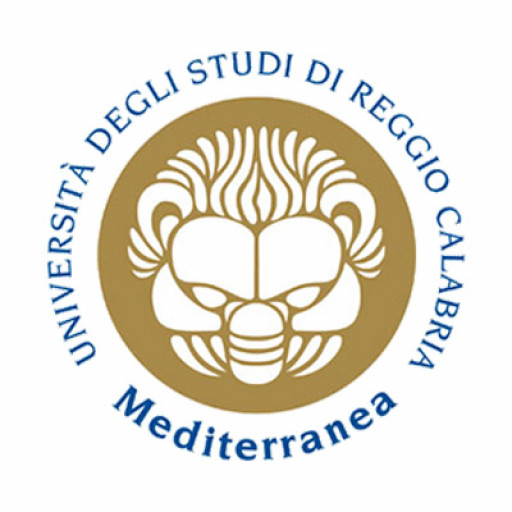Photos of university
The MSc in Environmental Planning at Queen's University Belfast offers students a comprehensive understanding of the principles and practices involved in sustainable spatial development and environmental management. This programme is designed to equip future professionals with the knowledge and skills necessary to address the complex challenges of environmental planning within a rapidly changing world. Throughout the course, students explore a broad range of topics including land use planning, environmental law, GIS and spatial analysis, urban and rural development, ecological conservation, and policy formulation. The curriculum integrates theoretical foundations with practical applications, encouraging critical thinking and problem-solving skills vital for effective decision-making in environmental planning. Students will engage in case studies, research projects, and fieldwork, fostering a hands-on learning experience that prepares them for careers in planning consultancy, local government, environmental agencies, and non-governmental organizations. The programme also emphasizes the importance of community engagement, ethical considerations, and sustainable development principles, ensuring graduates are equipped to promote environmentally responsible policies and projects. Collaboration with industry partners and exposure to current research developments aim to enhance employability and professional practice. By completing this MSc, graduates will be capable of analyzing complex environmental issues, developing sustainable solutions, and contributing to the creation of resilient, healthy communities. The programme is suitable for recent graduates from relevant disciplines and professionals seeking to specialize or update their skills in environmental planning. With an interdisciplinary approach and a focus on real-world applications, the MSc in Environmental Planning at Queen's University Belfast prepares students to become forward-thinking practitioners committed to the stewardship of the environment and sustainable development objectives.
Detailed Course Facts
Application deadline January 15 Tuition fee- EUR 4160 Year (EEA)
- EUR 13380 Year (Non-EEA)
England, Scotland and Wales £9,000; EU £3,575; International: £11,500
Start date September 2015 Duration full-time 36 months Languages Take an IELTS test- English
Course Content
This degree programme nurtures an understanding of the built and natural environment and the learning of skills which will enable graduates to participate in its design and development. It also develops a range of social science transferable skills which can be applied in a range of international career environs, and can be seen either as the first part of a four-year pathway to professional recognition in the fields of planning and development, or as a robust stand-alone multidisciplinary degree.
The general aims of the programme are to develop the professional skills necessary to work in the broad field of planning practice and development management, while providing an understanding of related economical, ethical, social and political dimensions. These are progressively developed during the programme, with a flavour of each year outlined below:
Stage 1Provides an overall introduction to the key issues, processes and professional skills required for planning practice, and includes projects that promote group working, oral presentations, academic writing, design skills and use of specialist software. Students are also introduced to a wide range of planning activity, the key political and administrative structures and contemporary issues facing the planning profession.
Stage 2Provides students with a more detailed theoretical appreciation of planning, with modules examining, for example, economics, sustainable development, and planning theory.
The year includes two key projects, one that develops skills in spatial planning policy, and another that promotes understanding of the development control process. Students are also given an opportunity to further develop skills in design issues and are introduced to the social aspects of planning activity.
Stage 3This final stage promotes a greater understanding of planning practice in a variety of political and cultural contexts. Students will have the choice of either completing an independent research project or they may wish to take advantage of a three-month Erasmus placement at a European university. The second semester includes modules dealing with law, infrastructure and transport, and specialist themes in current planning practice.
English Language Requirements
IELTS band : 6.5
To study at this university, you have to speak English. We advice you to
take an IELTS test. More About IELTSRequirements
- A-levelBBB + GCSE Mathematics
- BTEC Extended DiplomaA BTEC Extended Diploma with 10 Distinctions and 8 Merits + GCSE Mathematics.
- Irish Leaving CertificateB2B2B2B2CC/B2B2B2B2B2 + if not offered at Higher Level then Ordinary Level grade C in Mathematics
Work Experience
No work experience is required.
Related Scholarships*
- Academic Excellence Scholarship
"The Academic Excellence Scholarship can provide up to a 50 % reduction in tuition per semester. These scholarships will be renewed if the student maintains superior academic performance during each semester of their 3-year Bachelor programme. The scholarship will be directly applied to the student’s tuition fees."
- Access Bursary
Bursary for UK students all subjects where the variable tuition fee rate is payable.
- Alumni Bursary
Alumni Bursary for UK Undergraduate students
* The scholarships shown on this page are suggestions first and foremost. They could be offered by other organisations than Queen's University Belfast.
Accreditation
This degree is recognised by two different professional bodies: the Royal Town Planning Institute (RTPI); and the Royal Institution of Chartered Surveyors in Northern Ireland (RICS). To gain full professional recognition from these institutions, students will be required to complete a fourth year of study, followed by a period of work experience and assessment of professional competence. Further details are available from the School.










